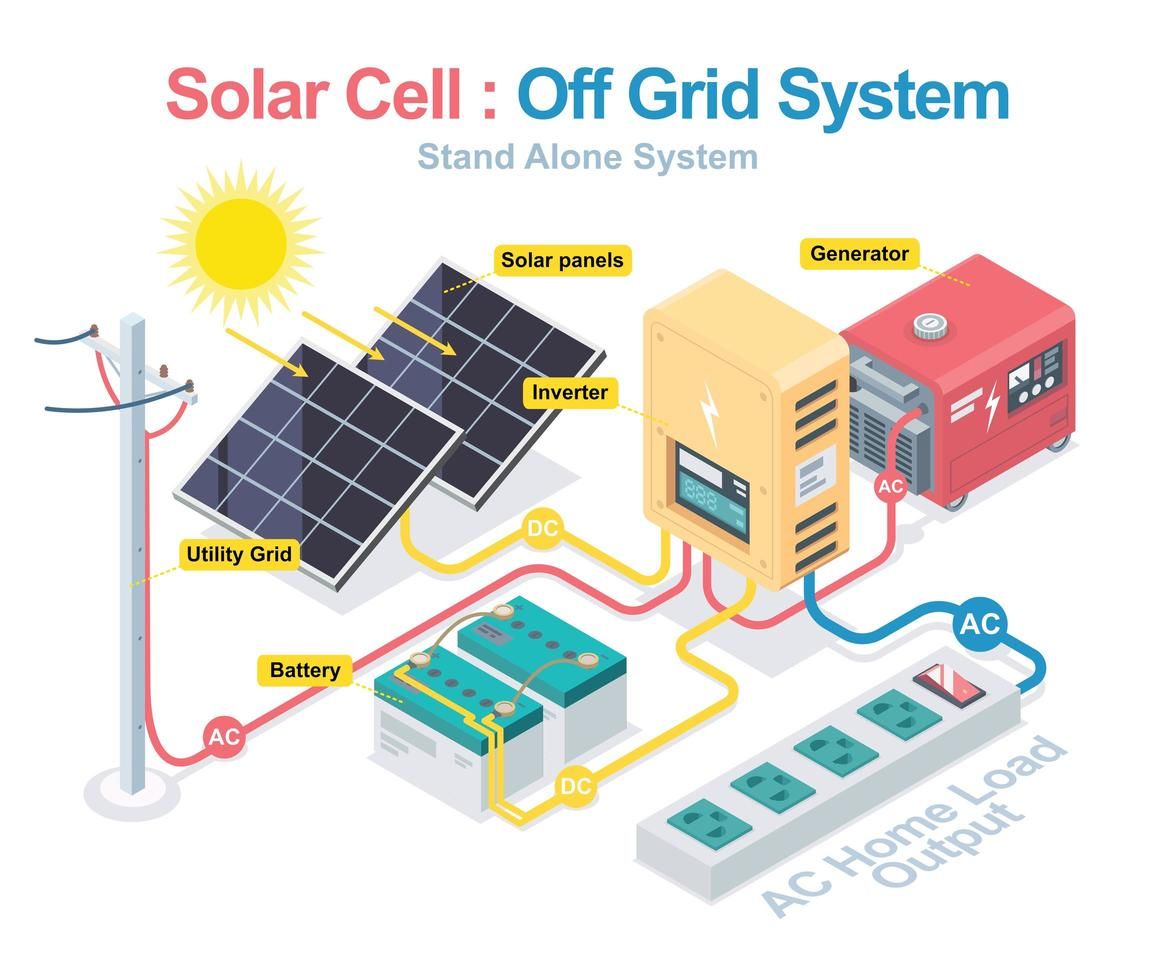Solar Water Pumping System
Solar water pumping systems have changed the way people access water. Their innovative technologies serve throughout farming, households, and other purposes efficiently. These systems replace conventional water pumps by utilizing solar energy, making them more environmentally friendly.
How does a Solar Water Pumping System Work?
A solar water pump has the following parts: solar panels, a pump controller, a water pump, pipes, and storage tanks. This system harnesses the power of the sun to generate electricity to run a water pump.
• Solar Panels: Photovoltaic (PV) solar panels capture sunlight and convert it to electricity which can be stored for later use.
• Pump Controller: The pump controller is the brain of a solar powered water pump. It ensures power is adequately sent to the solar panels and allows the pump to function without damaging the entire system.
• Water Pump: The pump to harness solar energy to draw water out from wells, rivers, or ponds and send it to where the water is needed.
• Pipes and Storage: Storage facilities or tanks hold the water for later use, especially for situations when there is limited sunlight, and pipes channel the water.
The sunlight caught by the solar panels gets transformed to electrical energy. This electricity is then channeled to the specific pump via the controller. Following this, the pump lifts water from the reservoir and supplies it through the piping network to the required site. It is clear from the explanation above that solar water pumps need no external input or power sources which tend to raise the overall cost or use fuel.

Advantages of Solar Water Pumps:
• Cost-Effective: Post installation, only a few operational expenses are incurred because the energy from the sun is basically free.
• Environmentally Friendly: Using renewable sources of energy lowers emission of greenhouse gases and dependence on fossil fuels.
• Low Maintenance: Solar water pumps incur comparatively lower maintenance costs due to less moving parts than economical pumps.
• Reliability: The solar pumps are perfect for remote areas where water is needed reliably because there is no need to worry about having power supplied.
• Government Support: In many countries like India, there are programs such as the PM Kusum Yojna which support farmers through subsidizing the cost incurred during the installation of solar pumps on their farms.

Types of Solar Water Pumps
Submersible Pumps: These pumps are suited for wells or boreholes. They are submerged in water and are ideal for deep water sources.
Surface Pumps: These are kept above water sources, suitable for use in shallow wells, rivers, or storage tanks.
DC Pumps: These pumps work directly on the electricity from the solar panels, making them very efficient.
AC Pumps: These systems work with the existing AC systems by using inverters to convert DC to AC power.

Technical Specifications
| Specifications | Details |
|---|---|
| Power Rating | 1 HP, 2 HP, 3 HP, and above |
| Solar Panel Capacity | 500W to 5000W |
| Voltage | 12V, 24V, 48V, 72V |
| Pump Type | Submersible, Surface, DC, AC |
| Flow Rate | 10 LPM to 300 LPM |
| Head | Up to 150 metres |
Uses of Solar Water Pumps
Agricultural: Solar water pumps are perfect for irrigating parched fields in regions of which do not have reliable electric supply, thereby increasing food production.
Watering Livestock: Supplying water to livestock on widespread pastures far away from settlements to enable productive animals to remain healthy.
Domestic Use: Using water in the rural areas for domestic purposes and improving the standard of living.

Implementing Solar Water Pumps with KLK Ventures Pvt. Ltd.
Assessment: Customizing the most appropriate design is based on the evaluation of water needs and site conditions.
Installation: Professional installation is carried out for solar panels, controllers, pumps, and other relevant infrastructure.
Maintenance: Continued support is provided to ensure the system is working efficiently.
Financing Assistance: Helping clients to navigate the government schemes would make solar water pumping systems affordable.
Solar water pumping systems offer various sectors a sustainable, cost-effective, and dependable solution for water resource management. These systems help in saving operational costs and simultaneously aid in preserving the environmental quality. KLK Ventures Pvt. Ltd. works continuously to provide high quality and reliable solar water pumping systems to communities and support sustainable development goals.
Check our website for more information or contact us directly to see how a solar water pumping system can work for you.

